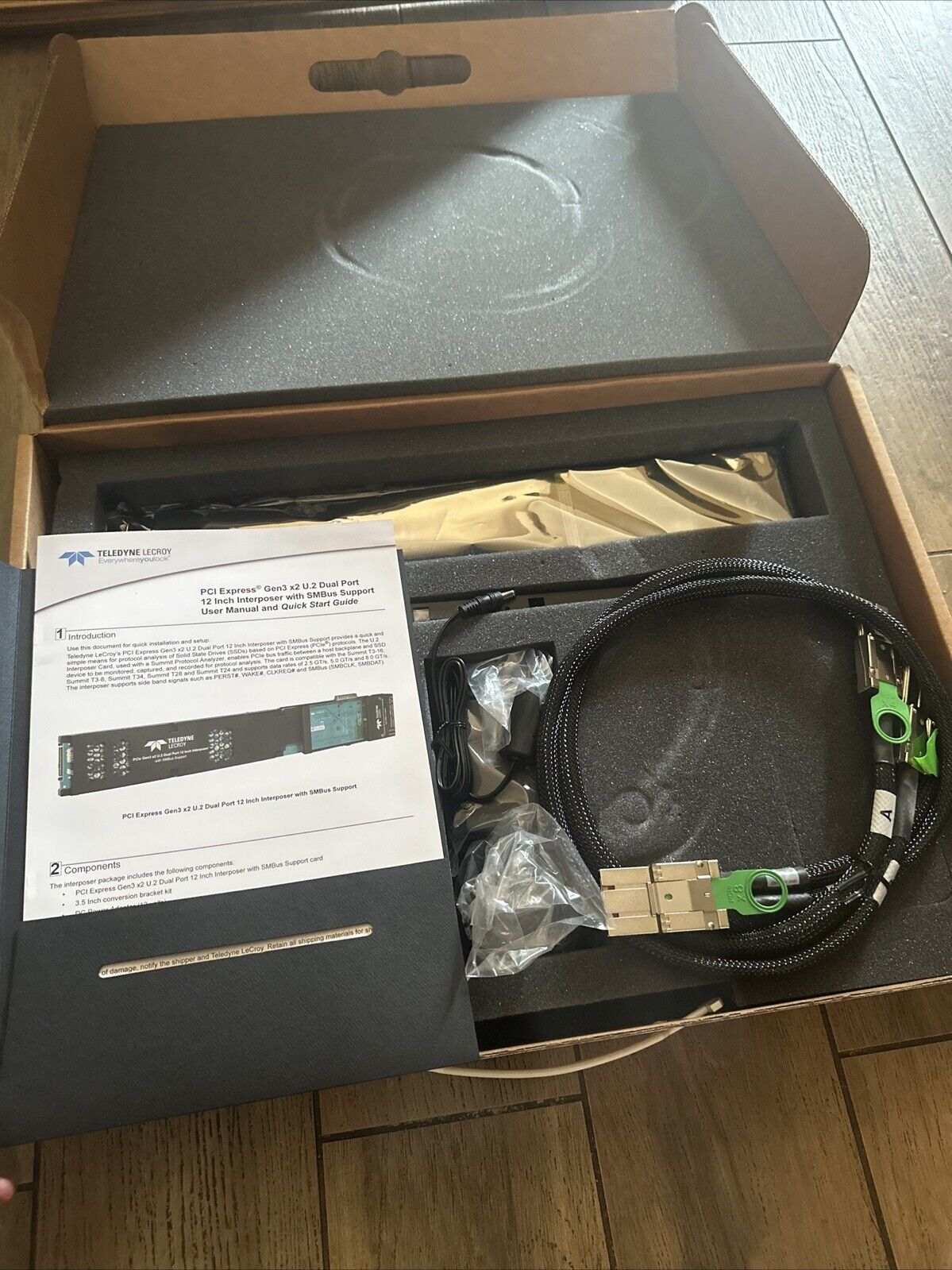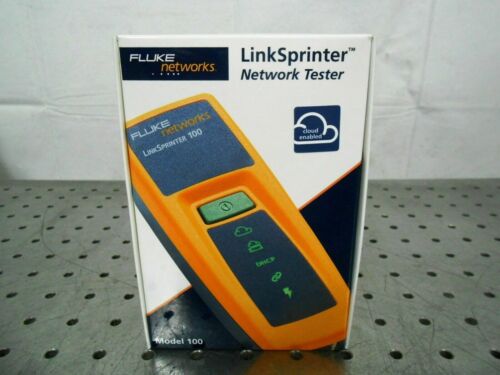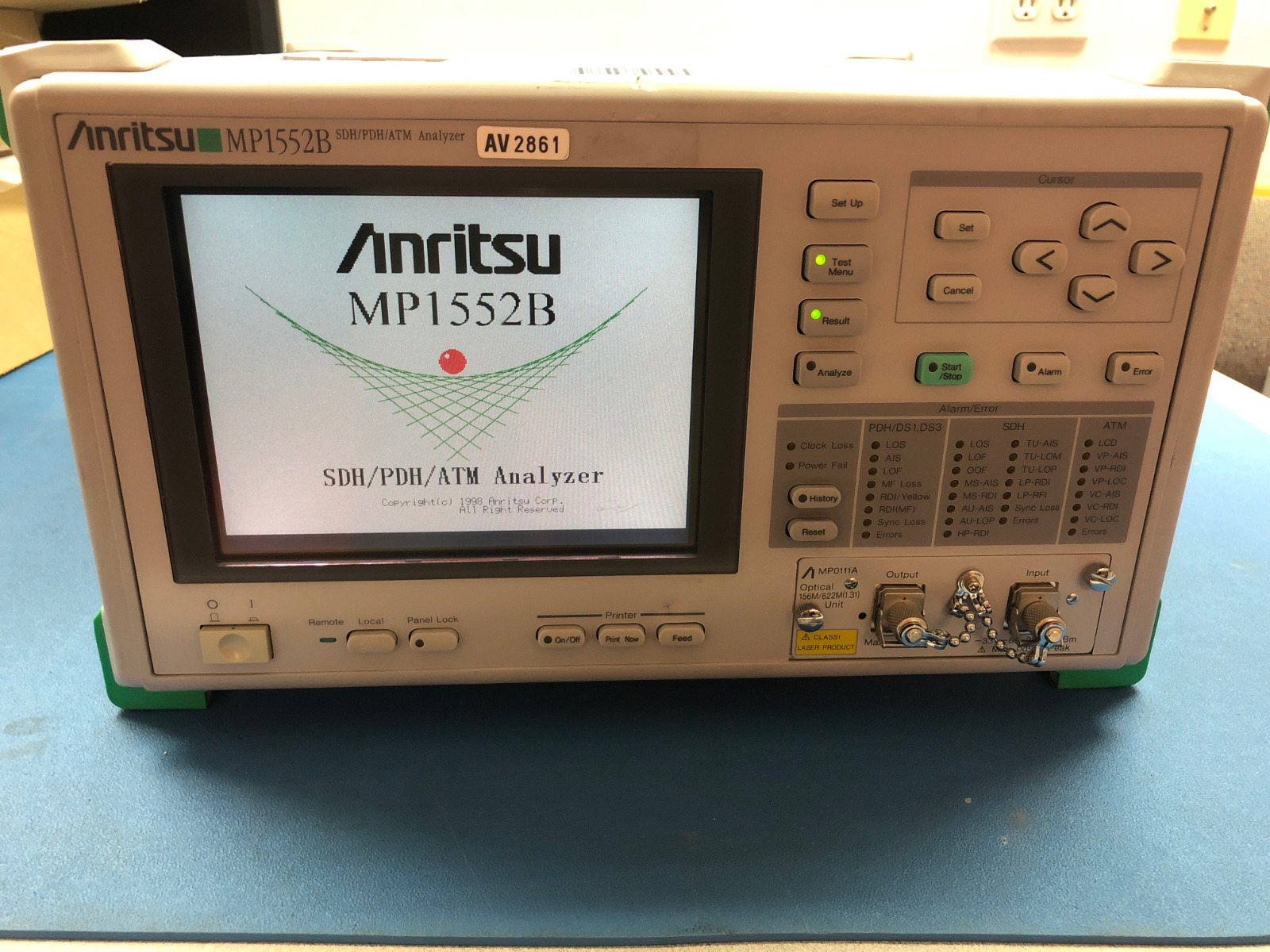-40%
Teledyne lecroy PCI Express Gen3 X2 Dual Port 12 Inch Interposer
$ 1177.44
- Description
- Size Guide
Description
Teledyne lecroy PCI Express Gen3 X2 Dual Port 12 Inch InterposerBrand new in box with all the instructions and manuals
Teledyne LeCroy’s U.2 (previously known
as SFF-8639) interposers provide quick
and simple means for protocol analysis
of Solid State Drives (SSDs) based on
PCI Express (PCIe) protocols.
The U.2 Interposer cards, used with a
Summit Protocol Analyzer, enable PCIe
bus traffic between a host backplane
and SSD device to be monitored,
captured, and recorded for protocol
analysis. The U.2 interposers support
PCIe host interfaces such as NVM
Express (NVMe), SCSI Express (SOP/
PQI), SATA Express (AHCI/PCIe) and
native PCI Express protocols at link
widths up to x2 per port and at data
rates from 2.5 GT/s up to 8.0 GT/s. Now
it is possible to monitor and analyze
multiple PCIe storage host interfaces
with a single set of tools.
The U.2 interposers provide connectivity
and monitoring capability for the U.2
connector targeted at enterprise storage
devices. This U.2 connector provides
flexible drive connectivity for NVM
Express, SCSI Express, SATA Express,
SAS, SATA, and native PCIe 3.0 host
interface devices in a serviceable and
hot-pluggable drive bay sometimes
referred to as “Express Bay”. U.2
Interposers can be used with 2-1/2” to
3-1/2” drives depending on the specific
card. To use these interposers, the
drive is inserted into a drive tray on the
interposer that supports a mechanical
and electrical connection to a U.2
connector. The interposer taps all PCIe
protocol traffic between the host and
the storage device and records it on the
PCIe protocol analyzer, where protocol
issues and performance metrics can be
further analyzed and debugged.
Teledyne LeCroy was the first company
to introduce a PCI Express protocol
analyzer with NVM Express decoding
functionality. Since that time Teledyne
LeCroy has added decoding for SCSI
Express (SOP/PQI) and SATA Express
(AHCI/PCIe). Integrating all three PCIe
SSD technologies into a single protocol
analyzer gives developers versatile
tools that can show essential details
regarding proper data transmission and
bus performance. These tools have been
at the center of much of the PCIe SSD
interoperability testing that has occurred
over the last few years.















